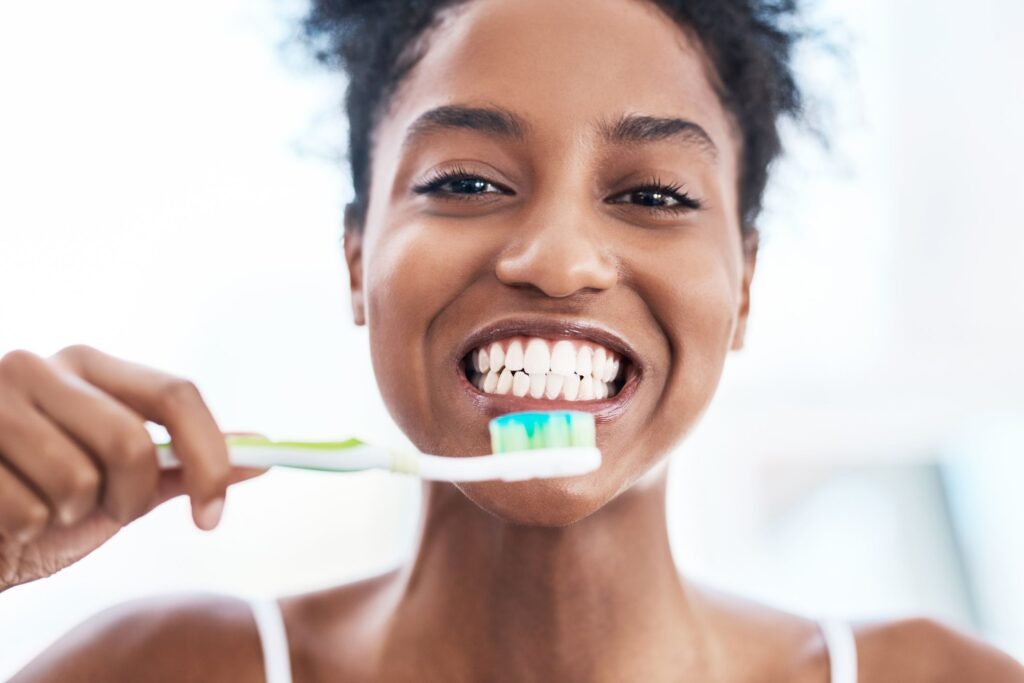Your toothbrush is a valuable tool for your oral health. As a result, you need to pick the right one for your needs. When it comes to choosing a toothbrush, the array of options can be overwhelming. One crucial factor to consider is the bristle type: soft, medium, or hard.

Soft Bristles: Gentle Care for Your Pearly Whites
One of the most common types of bristles is soft. In fact, there is a lot of value in a soft bristle toothbrush.
Gentle on Gums
Soft bristles are a top pick for many dental professionals because they offer a gentle yet effective cleaning. They are less likely to cause damage to the delicate gum tissue. Therefore, they are an excellent choice for those with sensitive gums or those prone to gingival recession.
Ideal for Children and Beginners
If you’re introducing dental care to little ones or transitioning from a manual to an electric toothbrush, soft bristles are a wise choice. They provide a forgiving brushing experience. This also allows users to develop proper brushing habits without the risk of causing harm to gums or enamel.
Effective Plaque Removal
Contrary to the misconception that firmer bristles clean better, soft bristles are adept at removing plaque and debris from the tooth surfaces. Their flexibility allows them to reach into crevices and contours. They can create a thorough clean without the risk of erosion.
Medium Bristles: The Balanced Approach
The next option when it comes to bristles is medium. Medium bristles have their merits when it comes to your oral health.
Versatile Cleaning
Medium bristles strike a balance between the gentle nature of soft bristles and the firmness of hard bristles. This versatility makes them suitable for a wide range of users. This also includes those who desire a bit more rigidity in their toothbrush but want to avoid potential damage.
Effective Stain Removal
Medium bristles can be effective at removing surface stains from teeth without being overly abrasive. This makes them a popular choice for those who consume staining beverages like coffee or tea but want to maintain a bright smile without compromising enamel integrity.
Tolerated by Most Users
While preferences vary, medium bristles are generally well-tolerated by most users. They provide a good balance of cleaning power and comfort. As a result, they are a go-to option for those who want a reliable toothbrush without the extremes of soft or hard bristles.
Hard Bristles: Proceed with Caution
Finally, there are hard bristles. Unlike other bristles, these can be harsh on your enamel and gums.
Intense Cleaning Power
Hard bristles are for those who seek a more intense cleaning experience. They can remove stubborn plaque and stains from the tooth surfaces. However, it’s crucial to approach hard bristles with caution to avoid potential damage to gums and enamel.
Not Suitable for Everyone
While some may find hard bristles comfortable, they are not recommended for everyone. Those with sensitive gums, a history of gum recession, or existing dental conditions may experience discomfort. Furthermore, using hard-bristled toothbrushes can make certain conditions worse.
Potential for Abrasion
The main drawback of hard bristles is their potential for causing abrasion to the enamel and gums. Vigorous brushing with hard bristles can lead to gum recession, tooth sensitivity, and enamel erosion. Dental professionals often advise against the use of hard-bristled brushes for the majority of the population.
